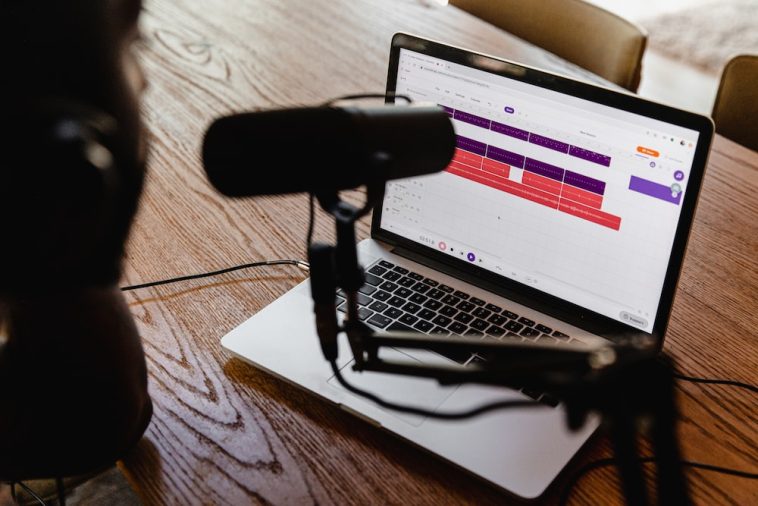Introduction.
When it comes to creating a podcast that hooks listeners, having a solid script is a game-changer.
In this guide, I’ll walk you through the entire process of writing an effective podcast script. I’ll cover why scripts are useful, go over different script styles, give you a step-by-step breakdown, and offer practical tips to create something unique and engaging.
Plus, I’ll throw in some pros and cons for scripting (because it’s not a one-size-fits-all approach), and wrap it up with an FAQ to help answer those lingering questions.
Why Write a Podcast Script?
Writing a script for a podcast is like building a blueprint for your episode. It lets you organize your thoughts, set the tone, and ensure your ideas come across clearly.
Podcasts without scripts can sometimes feel unfocused or unpolished, which can lead to a less-than-ideal listener experience. And in a competitive podcasting landscape, good structure makes a difference.
There are different levels of scripting—from detailed word-for-word documents to bullet-point notes. The approach you take depends on your podcast style, the format, and how comfortable you are with improvisation.
The goal is to find a balance between natural flow and structured content.
How Do I Write a Script For a Podcast?
1. Define Your Podcast Episode’s Purpose and Audience.
First, outline the episode’s objective. Are you aiming to inform, entertain, or tell a compelling story? Knowing your audience’s interests and expectations can help you tailor the tone and depth of your script.
2. Structure the Episode.
A clear structure keeps the episode engaging and on track. Here’s a typical podcast format:
- Introduction: Welcome listeners, introduce the topic, and briefly preview what’s coming up.
- Body: Dive into the main points. This is where the majority of your content goes.
- Breaks: If you’re running ads or need a breather, plan these breaks so they don’t feel disruptive.
- Conclusion: Summarize the main takeaways and include a call-to-action (CTA), like encouraging listeners to subscribe or follow your social media.
3. Choose Your Script Style.
You have three main styles to consider:
- Word-for-Word Script: This approach gives you the most control over your words, which can be great for storytelling or scripted interviews. However, it may sound a bit stiff if read directly, so practice a conversational delivery.
- Outline-Based Script: For a more relaxed feel, you can jot down key points and ideas rather than writing everything out. This keeps you organized without boxing you into specific words.
- Hybrid Script: A combination of detailed parts (like an intro) with bullet points for the main content. This approach lets you hit specific points while also giving room for natural flow.
4. Drafting the Introduction.
Your opening needs to grab attention right away. It’s your chance to set the scene, introduce yourself and any guests, and give listeners a reason to stick around. Consider adding a fun fact or asking a question to draw them in.
5. Craft the Body.
This is where the bulk of your content will go. Break down the content into sections or topics, each covering a specific point.
A good rule is to focus on no more than three to five key points per episode, as listeners are more likely to stay engaged and remember the main takeaways.
6. Write a Natural Conclusion.
The conclusion is where you wrap everything up, reinforce key points, and leave listeners with something to think about or do next.
Try to avoid abrupt endings; instead, aim for a warm, genuine close that makes your audience feel valued and connected.
Pros and Cons of Using a Podcast Script
Pros
- Improved Organization: A script keeps you focused and ensures you cover all the important points.
- Enhanced Clarity: Well-planned sentences improve comprehension, making complex topics easier to follow.
- Reduced Filler Words: Scripts reduce filler words like “um” and “uh,” leading to a cleaner, more professional sound.
- Confidence Boost: Knowing what you’ll say next helps reduce anxiety, especially when starting.
Cons
- May Sound Stiff: Fully scripted podcasts can sound less conversational if read word-for-word without variation.
- Time-Consuming: Writing a complete script is time-intensive and may not be feasible for weekly episodes.
- Less Spontaneity: Over-scripting can hinder the natural, spontaneous flow that some listeners prefer.
FAQ
1. Do I need a script for every episode?
- Not necessarily. Some podcasters thrive with just a loose outline, while others need detailed scripts. Experiment and find what works best for your podcast style.
2. How long should a podcast script be?
- The length of your script will depend on your episode length and format. On average, a 15-minute episode translates to about 1,500–2,000 words if scripted word-for-word.
3. Can I use AI tools for podcast scripting?
- Yes, tools like ChatGPT can help generate ideas or even sections of scripts. However, it’s essential to personalize and review these to ensure your unique voice shines through.
4. Should I include jokes or humor in my script?
- If humor fits your style and topic, go for it! Just ensure that it feels natural and isn’t forced. Humor can make your podcast more relatable and enjoyable.
Conclusion
Writing a script for your podcast can transform the entire experience, making it smoother and more engaging for your listeners.
With a script, you have a roadmap that helps avoid awkward pauses, keeps the episode on track, and gives you confidence.
So, are you ready to give scripting a try, or do you prefer a more spontaneous approach?





GIPHY App Key not set. Please check settings